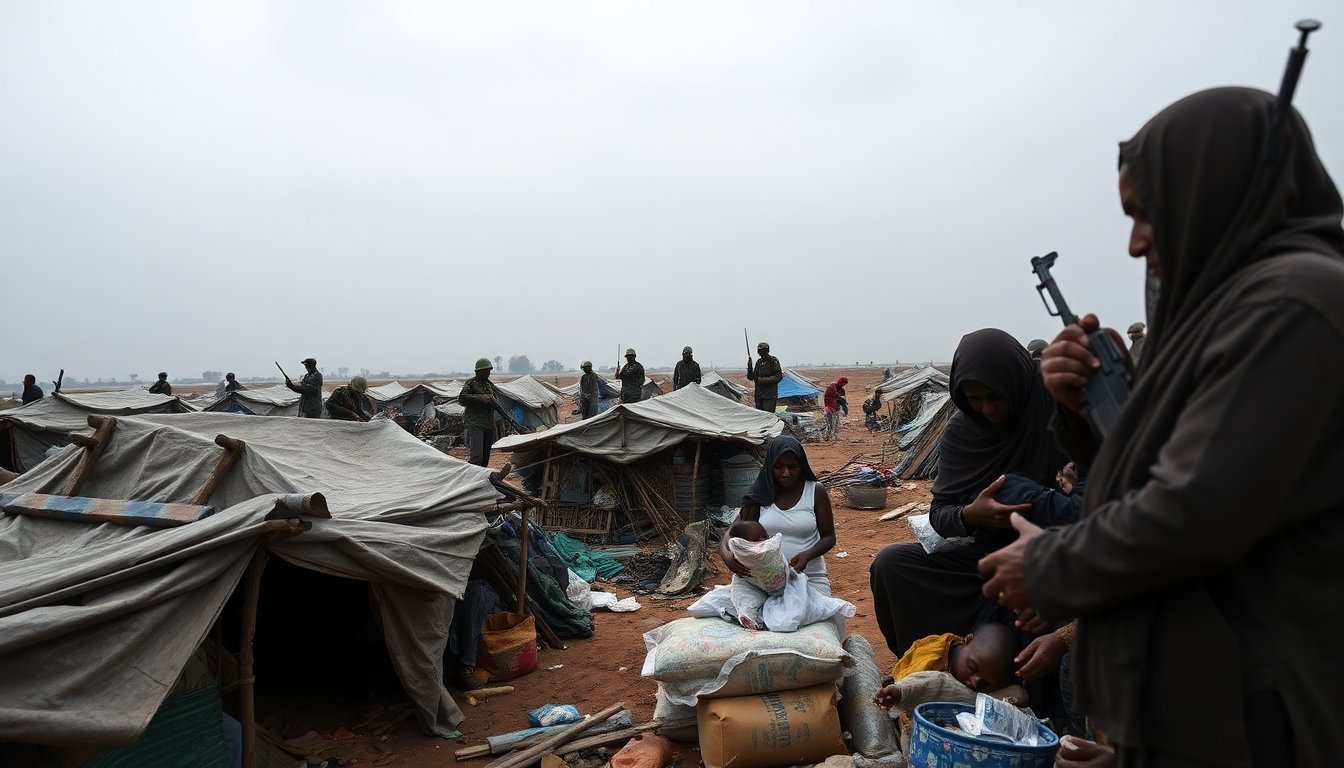Table of Contents
The ongoing civil war in Sudan, which erupted on April 15, has brought tremendous suffering to innocent civilians and devastated the country’s infrastructure. As the conflict rages on, it has escalated into the world’s largest humanitarian crisis, with an alarming death toll of approximately 150,000 individuals and over 12 million people displaced within the country. Amid this turmoil, evidence has emerged linking Canadian-manufactured firearms to a notorious paramilitary group responsible for heinous acts against civilians.
One of the focal points of this conflict is El Fasher, a city that has become synonymous with the violence engulfing Sudan. Once regarded as the last bastion of the Sudanese Armed Forces (SAF) in the Darfur region, El Fasher has faced an unrelenting siege by the Rapid Support Forces (RSF), which analysts describe as engaging in ethnic cleansing. After enduring over 500 days of siege, the city fell to the RSF, leading to an increase in reported civilian massacres.
Evidence of Canadian firearms in the conflict
In a shocking revelation, analysis conducted by CBC’s visual investigations unit has identified weapons bearing the logo of Sterling Cross Defense Systems, a firearms manufacturer based in Abbotsford, British Columbia, in the possession of RSF fighters. These findings were substantiated through multiple photographs and videos shared on social media platforms, demonstrating the presence of the company’s XLCR sniper rifles among the armed group.
Experts have confirmed that these weapons have been in circulation for some time, as evident in various verified social media posts. The CBC team employed advanced geolocation techniques and matched camouflage patterns to ensure the authenticity of the images, which depict the distinctive logo of Sterling Cross prominently displayed on the rifles.
Notable instances of weapon usage
Amidst the fighting for Khartoum, the RSF released a video on their official Telegram channel showcasing their fighters along the southern front line. In this footage, one RSF member is seen carrying a modern bolt-action rifle, which is equipped with a high-powered scope. Briefly, as the camera angle shifts, the Sterling Cross logo becomes visible on the weapon, adding to the growing evidence of the company’s arms being utilized in the conflict.
This is not an isolated incident. Through collaboration with open-source intelligence researchers, CBC verified at least nine instances featuring Sterling Cross-branded rifles in the hands of RSF fighters. One particular image displayed an RSF member in desert camouflage, confidently holding a Sterling Cross rifle while standing on a roadside.
The implications of arms sales and international regulations
Despite repeated inquiries, Sterling Cross has remained tight-lipped regarding the findings surrounding their products in Sudan. Aimee Byrne, the company’s director of operations, stated their policies align with those of Global Affairs Canada, emphasizing compliance with the Export and Import Permits Act. However, the lack of detailed responses raises concerns about the transparency of Canadian arms sales, especially to countries that may supply factions in the Sudanese conflict, such as the United Arab Emirates (UAE).
Established in 2008, Sterling Cross initially operated as a broker for international military contracts. Over time, they evolved to produce rifles and ammunition, including the XLCR. Past contracts with the Canadian government highlight the company’s involvement in providing military supplies, underscoring the potential ramifications of their products being used in violent conflicts abroad.
Challenges in monitoring arms exports
The Canadian government has maintained an arms embargo on Sudan since 2004, and sanctions have been enforced against entities involved in the ongoing conflict for some time. However, the route through which Sterling Cross weapons reached the RSF remains unclear. Analysts suggest that the UAE has been instrumental in rerouting Canadian arms to various paramilitary groups, given their limited domestic defense industry.
Emadeddin Badi, a senior fellow at the Global Initiative Against Transnational Organized Crime, emphasizes that Canada exports substantial amounts of weaponry to the UAE, which in turn supplies the RSF. The lack of stringent oversight and monitoring of these arms once they leave Canadian borders presents significant challenges in ensuring accountability and preventing use in conflicts.
In conclusion, the case of Canadian arms linked to the violence in Sudan reveals the complexities and ethical dilemmas surrounding international arms sales. As the situation evolves, it is crucial for Canada to improve its regulatory mechanisms and ensure that its weapons do not contribute to human rights violations around the world.


